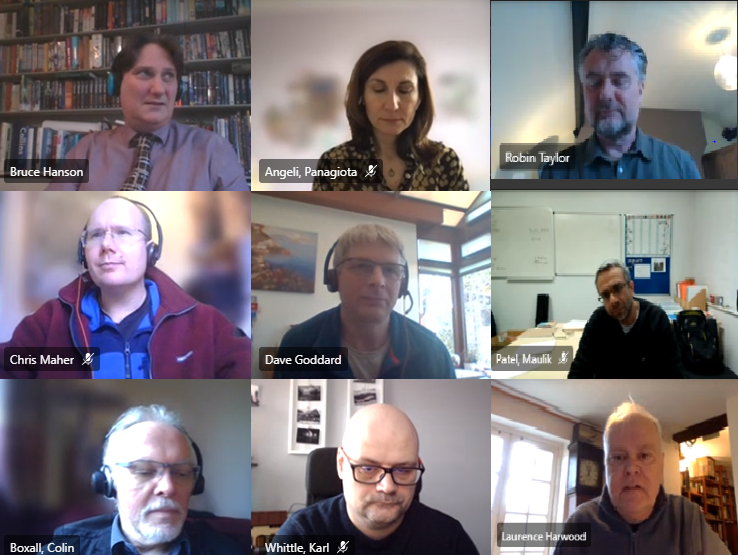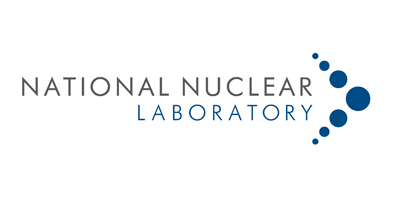ATLANTIC meeting: A voyage of discovery
Last week, Advanced Fuel Cycle Programme (AFCP) members presented at the EPSRC ATLANTIC consortium’s annual meeting. Closely aligned with AFCP, the academic consortium works across the UK and specialises in the whole nuclear fuel cycle.
Adapting to the new normal of digital networking, the EPSRC ATLANTIC consortium held its second annual meeting as a virtual event over 20-21 January 2021. Although it had a very different feel to last year’s event at the Imperial War Museum in Manchester, it provided researchers the opportunity to connect and share their work over the past 12 months.

ATLANTIC is the only multidisciplinary academic consortium in the UK devoted to the whole nuclear fuel cycle, from the manufacture of fuel through to recycle and waste management. Between its technical focus and academic network, the consortium draws distinct parallels across the work being conducted by AFCP. Addressing issues complementary to AFCP, ATLANTIC is focused on the development of fuel fabrication and recycling technologies for accident tolerant fuels, with a key focus on the basic science behind the applications.
The four-year £3m programme is funded by the Engineering and Physical Sciences Research Council (EPSRC) and is led by the University of Leeds. With academic partners that span several AFCP organisations, the consortium includes the universities of Bristol, Cambridge, Edinburgh, Lancaster, Liverpool, Manchester, Oxford, Reading, Sheffield, University College London and Imperial College.
ATLANTIC is supporting 14 post-doctoral and postgraduate researchers (PDRAs) who are benefiting from access to state-of-the-art facilities for fuel cycle research in the UK. Of these, four PDRAs are also being funded by AFCP. Through this aligned funding, ATLANTIC and AFCP have turned 18-month PDRAs into 36-month PDRAs to ensure that this critical fuel cycle work will continue beyond the funding cycle of AFCP.

At the event, AFCP technical leads Dave Goddard and Robin Taylor provided introductory presentations outlining AFCP’s recent progress in developing fuel fabrication and spent fuel management technologies towards industrial readiness. This helped to set the scene for ATLANTIC researchers to present their work in five work package areas:
- Fuel-separations interface
- Effects of contaminants on separations
- Investigation and optimisation of accident tolerant fuel materials
- Fuel behaviour: Non-stoichiometry and the fuel-water interface
- Integrated management of accident tolerant fuels
Despite the lack of face-to-face networking, the event raised plenty of opportunities for questions and discussion. The chat function in Teams was busy keeping conversations going and sharing information!
It was great to hear about the excellent work which will feed new ideas and provide better understanding of the advanced fuel and cladding materials being developed in AFCP.
Dave Goddard, AFCP Advanced Fuels Lead
Despite the COVID-affected year, the progress demonstrated by the researchers has been really impressive. It shows the real strength in depth we have built in the UK academic community, which will make a valuable contribution to future nuclear energy and meeting the Net Zero target in the UK.
Robin Taylor, AFCP Advanced Recycling and Sustainability Lead
ATLANTIC is vital to be wellbeing of fundamental nuclear fuels and recycle research in the UK and the strong link we have with AFCP is crucial to our success. AFCP gives us clear sight of where the development leads. I am delighted at the level of support the consortium has received from NNL and AFCP.
Bruce Hanson, ATLANTIC Consortium Director
ATLANTIC reaches its mid-term review this Easter, so there is plenty more to look forward to in the next couple of years. For more information on the programme, please visit the EPSRC ATLANTIC website. And, in case you hadn’t guessed, ATLANTIC stands for ‘Accident ToLerANT fuels In reCycling’…. obviously!
AFCP is part of the Department for Business, Energy and Industrial Strategy’s (BEIS) £505m Energy Innovation Programme.
